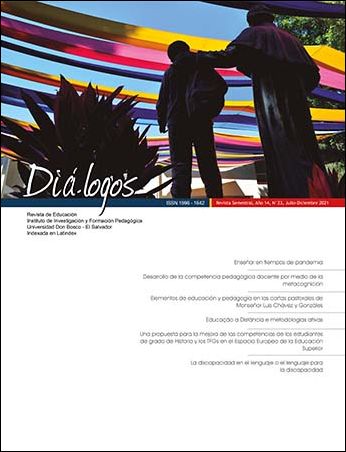Disability of language or the language for disability
DOI:
https://doi.org/10.5377/dialogos.v23i1.14756Keywords:
language, disability, equality, paradigms, inclusionAbstract
This article aims to clear up doubts about the appropriate terms to refer to people with disabilities and the correct way to mention their condition, without doing so in a pejorative way and avoid causing offenses or discomfort, due to the general ignorance that exists about the words relevant. The method that has been followed for this is to overview the different visions about disability throughout history and that lead to the models or paradigms that currently describe that reality, as well as the influence they exert on the language that is used. In addition, a list of the terms used to refer to disability has been created, each of the pejorative words in common use is analyzed to discard their use and to mention the appropriate term according to each case. Through this writing it is reflected that words go beyond a designation, they are a reflection of the thinking of a society that lives a specific historical moment, and, therefore, it is necessary to transform perceptions about disability from language to the environment, and thus, to create an inclusive setting that does not have barriers beyond architectural or structural elements. This implies creating a humane treatment from words, from the use of language that reflects equality and solidarity with the members of a society.
Downloads
1086

